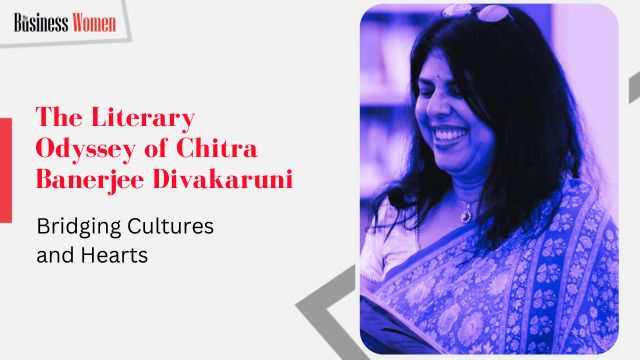The Literary Odyssey of Chitra Banerjee Divakaruni: Bridging Cultures and Hearts
Chitra Banerjee Divakaruni, an eminent Indian-American author, poet, and esteemed academic, has left an indelible mark on the literary landscape by crafting narratives that delve deep into the South Asian immigrant experience. Her multifaceted body of work, spanning various genres, not only enthrals readers but also sheds light on the rich tapestry of Indian and American cultures.
Early Life and Academic Pursuits
Born as Chitralekha Banerjee in Calcutta, India, in 1956, Divakaruni’s literary journey commenced in her homeland. After completing her B.A. from the University of Calcutta in 1976, she embarked on an academic adventure that transcended continents. Moving to the United States the same year, she pursued her master’s degree at Wright State University, juggling multiple odd jobs while nurturing her literary aspirations. Despite facing numerous challenges, her unwavering determination led her to earn a Ph.D. in English from the University of California, Berkeley, in 1985, with a dissertation focusing on the esteemed playwright Christopher Marlowe.
Literary Career and Contributions
Divakaruni’s entry into the literary arena began with poetry, as evidenced by her works like “Black Candle” and “Leaving Yuba City.” Her poetic sensibilities seamlessly transitioned into prose, marking an early triumph with her short story collection “Arranged Marriage.” This collection, honoured with the American Book Award, PEN Josephine Miles Award, and Bay Area Book Reviewers Award, intricately explores the nuances of arranged marriages and the lives of South Asian immigrants.
Her novels, spanning diverse themes and genres, showcase her narrative prowess. Notable works such as “The Mistress of Spices,” blending mysticism with reality, and “Sister of My Heart,” delving into the complexities of sisterhood, stand as testament to her storytelling acumen. “The Palace of Illusions,” a reimagining of “The Mahabharata,” has garnered widespread acclaim as a national best-seller in India, offering a fresh perspective on this timeless tale.
Film, Television, Theatre, and Opera
Chitra Banerjee Divakaruni’s literary creations have transcended the confines of the written word. “The Mistress of Spices” found its cinematic expression in 2005, while “Sister of My Heart” was adapted into a Tamil television series, emphasising the universal themes embedded in her narratives. Her story “Clothes” was brought to life on stage, resonating with audiences through live performances.
Her venture into opera involved penning the libretto for “River of Light,” a chamber opera delving into the life of an Indian woman in Houston. Furthermore, her novel “The Palace of Illusions” was adapted into a theatrical production, with a Bollywood film titled “Mahabharat” currently in development.
Honours and Awards
Chitra Banerjee Divakaruni’s literary prowess has been recognised with numerous accolades, including the 1996 American Book Award, the PEN Josephine Miles Literary Award, and the Bay Area Book Reviewers’ Award for “Arranged Marriage.” Additionally, her contributions have been acknowledged with the 2007 Distinguished Writer Award from the South Asian Literary Association.
Publications and Legacy
Divakaruni’s extensive literary repertoire encompasses fiction, poetry, and anthologies. Noteworthy works include the award-winning “Arranged Marriage,” the mystical “The Mistress of Spices,” and the reimagined epic “The Palace of Illusions.” Her influence extends to young adult and children’s literature, with creations such as “Neela: Victory Song” and the “Brotherhood of the Conch” series captivating young minds.
Personal Life and Family
Residing in Houston with her husband, Murthy, and nurturing two sons, Anand and Abhay, Chitra Banerjee Divakaruni infuses her personal experiences into her works, lending them a distinct authenticity and resonance.
Conclusion
Chitra Banerjee Divakaruni’s literary journey, characterised by resilience and creative depth, epitomises her ability to traverse diverse themes and genres. Her impact extends far beyond the realm of literature, reaching screens, stages, and opera houses, solidifying her status as a revered figure whose narratives serve as bridges between worlds and cultures.

